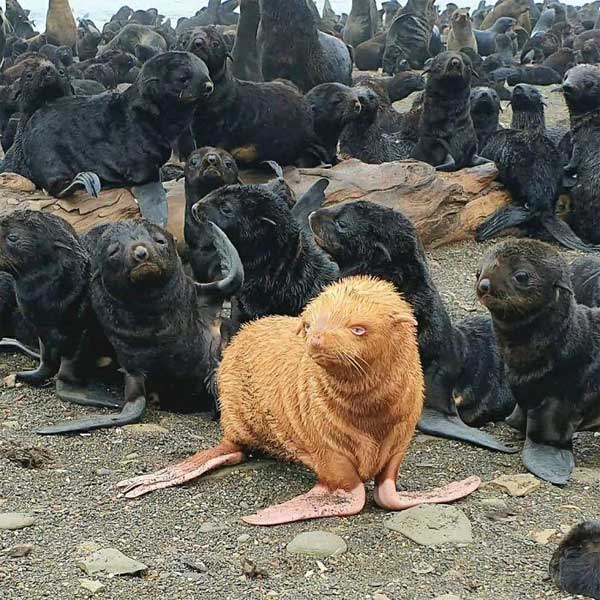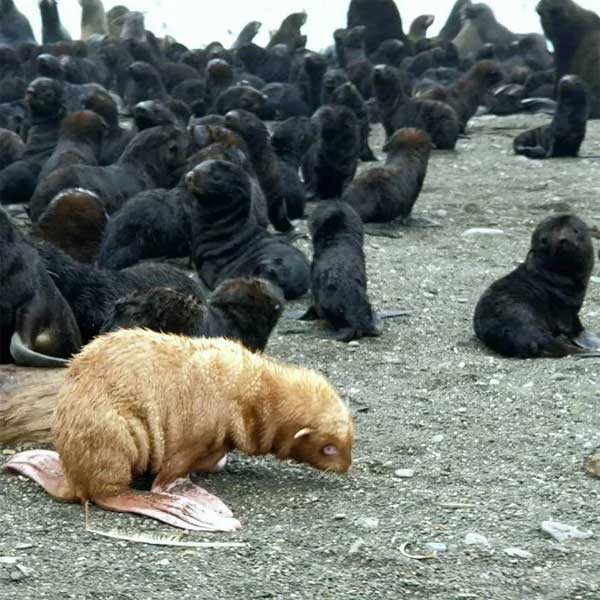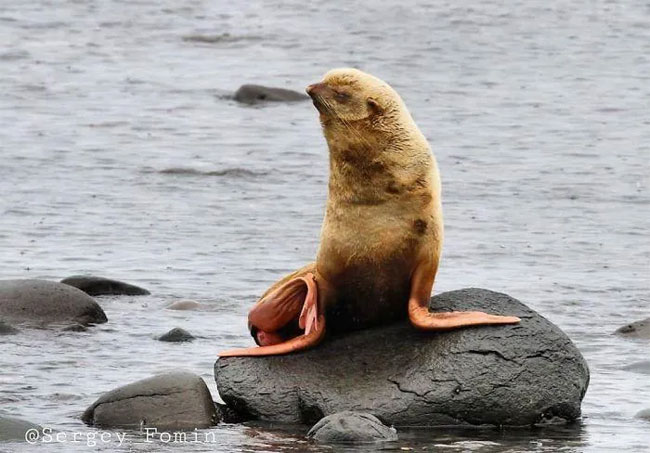To protect the seal, scientists have devised a plan to relocate it from the community to a safer habitat.
Recently, an albino seal discovered by Russian biologist Vladimir Burkanov has been attracting significant public attention.
The albino seal stands out against the dark fur of its peers and was found on Tyuleny Island in the Sea of Okhotsk, Russia.
With its distinctive appearance, featuring yellow fur, blue eyes, and pink flippers, this seal seems to be somewhat shunned by its fellow seals.

The distinct fur color has caused the seal to be isolated by its peers.
In the images captured by Burkanov, the seal appears to be playing alone while others gather in small groups, interacting with one another.
To make it easier to identify, scientists have nicknamed the seal “the ugly duckling.” In reality, this seal is not ugly at all; it has many cute and endearing features. However, its significant differences have made its peers wary when approaching it, leading scientists to give it this nickname.

Albinism has severely impaired the seal’s vision.
Researchers have noted that the likelihood of an albino seal being born in the wild is extremely rare, estimated at about 1 in 100,000 individuals.
Vladimir Burkanov later posted a short clip of the albino seal on his personal page, receiving much praise from the online community.
Burkanov stated that the “ugly duckling” is a case of complete albinism, as it has reddish fur instead of white and shows no pigmentation in its eyes. This condition will lead to poor vision and lower reproductive capabilities for the seal.

It is unlikely to reproduce normally.
Unlike other cases where albino seals are rejected and ostracized by their colonies, the situation for the “ugly duckling” seems much more fortunate. It remains within the colony and appears to be quite “plump” and energetic. This is a sign that the seal has been well cared for and nurtured by its mother.
Currently, the “ugly duckling” is being closely monitored by biologists. In the event that it is rejected and driven away by its colony, these experts will take it to an aquarium in the city for care.
After images of the “ugly duckling” went viral online, biologist Vladimir Burkanov continued to share images of another albino seal case. This seal was found in 2017, also exhibiting color changes and poor eyesight, which prevented it from reproducing. However, this seal has continued to thrive and is now about 5 to 6 years old, noted as the first albino seal in the North to survive into adulthood.


















































